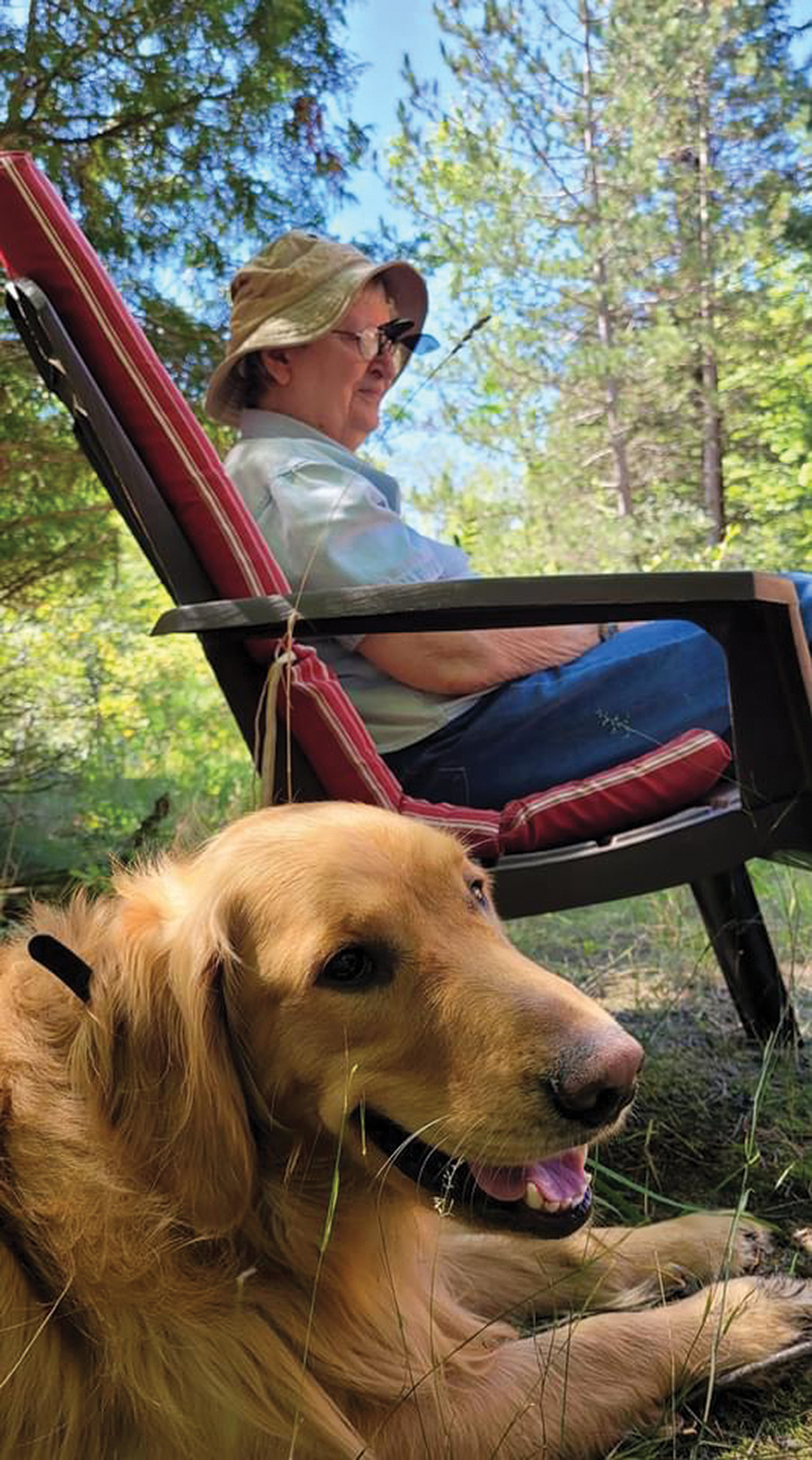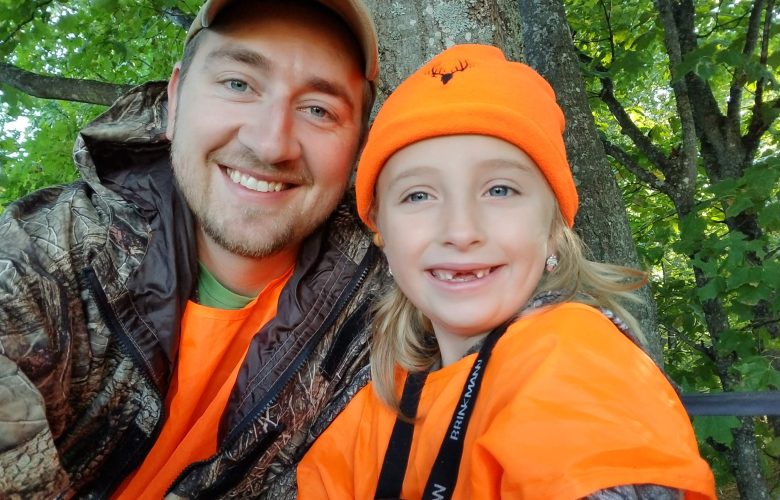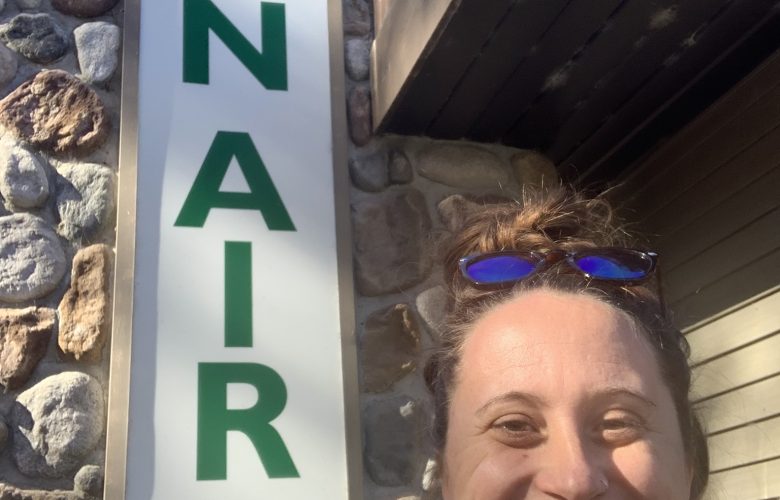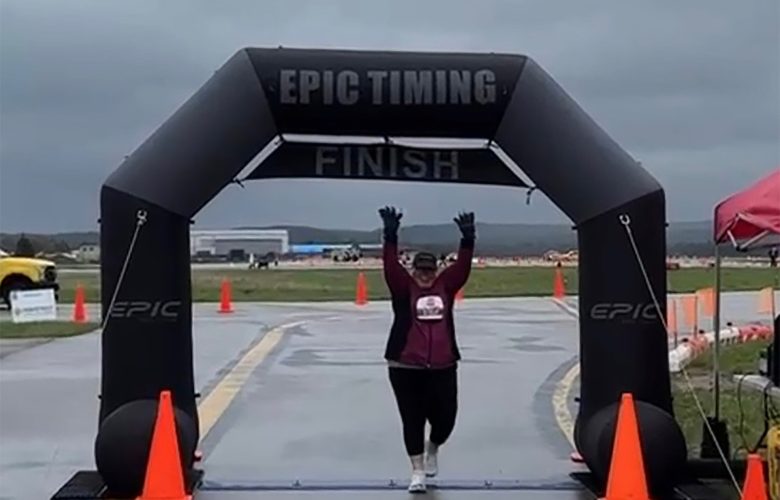Learning philosophy from a four-legged pal
By Annis Pratt
Current Contributor
As the summer nears its end, with carefree days at my Up North river cottage giving way to autumn, I find myself wondering about my (Downstate) purpose for life. In my ordinary, day-to-day decisions amid the random pitfalls and sudden reversals in my world of COVID threats, family crises, and frightening climate changes, I usually follow the Stoic philosophy of figuring what I can control amidst all the chaos, and then working out what to do about it.
But after a service dog vacationed at my cottage this past summer, I am now considering the alternative of Cynicism.
I am not thinking about that school of philosophy’s conviction that people only pursue their individual self-interest (with reason as a Machiavellian adjunct). Life as a Cynic is not entirely consumed with sneering: the name derives from the Ancient Greek kynikos, or “dog-like,” and the root kyôn, or “dog.” And it is the carefree quality of a dog’s life—doing your own thing, like chasing your tail and lazing around in the sun all day long—that Cynicism encourages you to follow.
Bowie—a very large, very active, two-year-old Golden Retriever—used a flexible screen curtain to run down to the river, splash and swim, gallop through the forest, roll in the mud, and dig holes to cool himself off in the sandy soil whenever he wanted.
Although I could take Bowie’s infectious exuberance as a model for doggy self-content, it was his attitude to humans that inspired a new take on my purpose for life.
To start with, his tearing around at will depended on his always returning at call. When he got back to you, he would stand very still to figure out what you needed.
If he sensed sadness or anxiety, he would gaze soulfully into your eyes and offer a paw for a long, long hold (clearly, he got something out of this for himself).
If you were having a panic attack, he would lean into you and even (in extreme cases) lie on top of you.
If you had a fall—as I did during his visit—he barked his head off while licking you all over your face.
When he swam with us, he wore a life jacket with handles: if you looked to be in the least bit of trouble, he swam along next to you, so you could grab the jacket’s handles for him to pull you to shore.
Like many dogs, Bowie seems to like having a job, a purpose.
My childhood dog, Tuffy, was a terrier mutt and a terrific rat catcher. All summer long, the dock workers down the road from our Connecticut home kept lists of how many water rats Tuffy throttled, and they praised her to the heavens. In the winter, however, we lived in a small New York City apartment full of cigarette smoke, where Tuffy became neurotic and miserable. She was walked three times a day, but there was no point to it. The Big Apple lifestyle was not fulfilling her purpose.
You do not have to be trained as a service dog to achieve the well-being of purpose: a dog that barks every time someone comes to the door, for example, is probably trying to find self-respect through a meaningful life as a watchdog.
It is Bowie’s purposeful approach to humans that inspired me. We Stoics review our principles of life every couple of years; here are some things Bowie taught me:
• Throw yourself with total exuberance into what gives you pleasure.
• Take lots of naps.
• When someone calls, go to them. Use all of your senses to figure out what they need.
• Dogs do not talk; you should not either—just sit there and listen. (If you say anything, you are not listening.)
• You can offer them a hand, and, if it seems acceptable, lean against them.
• It is probably not a good idea, however, to climb on top of them and lick them on the face.
Annis Pratt has a cottage on the Betsie River. She has been a bird watcher since 1947 and finds the banks of the Betsie an absolute bird paradise. She is author of The Infinite Games Series of adventure novels about a marshland folk who are threatened by the draining of their homeland and of three non-fiction books about the way that myths are used in literature. She is a nature writer, a columnist for the international e-magazine Impakter.com, and was an early contributor to The Betsie Current, back in the 2005-06 days. Visit AnnisPratt.com to learn more or look for her books on Amazon.
Featured Photo Caption: This is a photo of a dog. His name is Bowie. Photo courtesy of Annis Pratt.




